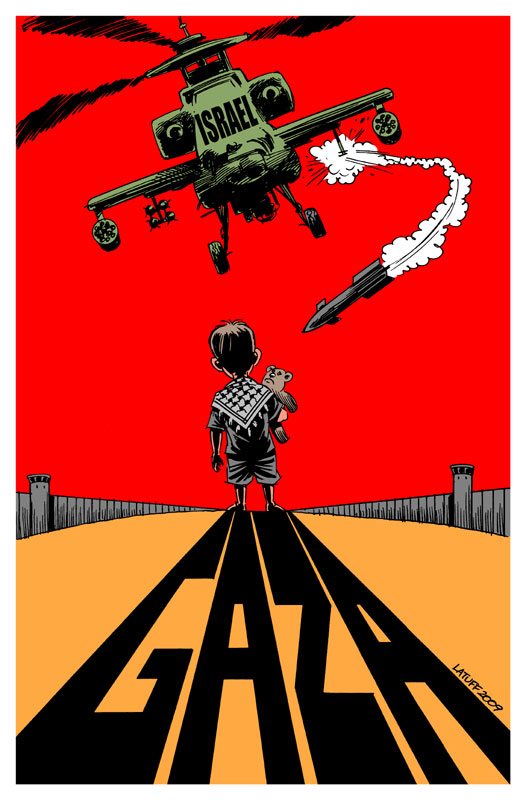Tag: Boycott Campaign
-
Open letter from Gaza: Three years after the massacre, justice or nothing!
27 December 2011 | Besieged Gaza, Occupied Palestine We, Palestinians of Gaza, 3 years on from the 22-day long massacre in Israel’s operation ‘Cast Lead’, are calling on international civil society to make 2012 the year when solidarity with us in Palestine captures the spark of the revolutions around the Arab world and never looks…
-
Occupy Wall Street not Palestine!
13 October 2011 | Palestinian BDS National Committee Occupy Wall Street not Palestine! We are part of the world’s 99% yearning for freedom, justice and equal rights! If a people one day wills to live fate must answer its call And the night must fade …
-
National Building Museum cancels Caterpillar Inc. award ceremony!
7 September 2011 | Rachel Corrie Foundation for Peace and Justice ACT NOW: Stop Rewarding Complicity in Human Rights Abuses Altogether! Due to help and pressure from individuals and social justice groups across the country, the National Building Museum has informed us that it has canceled the public award ceremony to present Caterpillar Inc. with…


